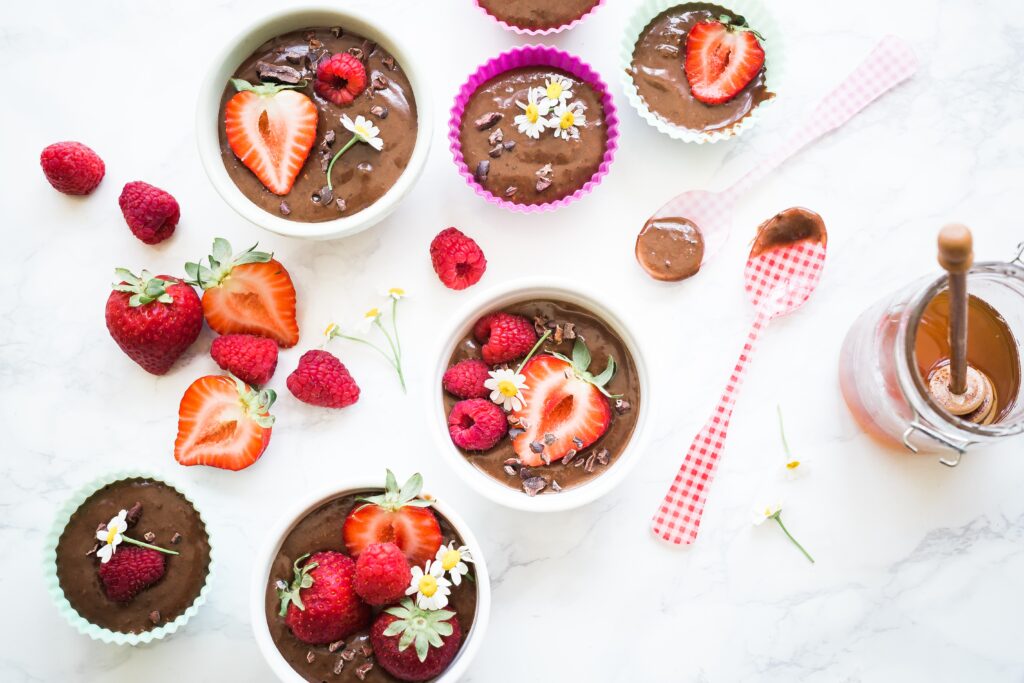Advertisement
Deep, Dark Chocolate Secrets
What’s inside our favourite Valentine’s treat?

Advertisement
Where did it all begin?
That luscious dark chocolate began its journey to our Valentine’s plate as a tiny pink or white flower on the branches of the Theobroma cacao tree (meaning “food of the gods”), which flourishes in hot, rainy tropical regions within an area roughly 20 degrees north and south of the Equator.
Advertisement
How much do we eat?
We consume a mountain of chocolate every year. The average Canadian savours 12 lb (5.5 kg) of chocolate, while the Swiss—world-champion chocoholics—indulge in just under 20 lb (9 kg) each year.
What’s in the bean?
- 45–53.2% fat (variety of fatty acids) in the form of cocoa butter
- 10% phenols and flavonoids (antioxidants)
- 1–3% theobromine and caffeine (alkaloids that stimulate the central nervous system)
- minerals such as potassium, magnesium, calcium, and iron
Advertisement
Does eating chocolate make us happier?
There must be good reason for chocolate’s enduring place in our hearts. Though researchers seem to agree that chocolate has the ability to alter our mood, there doesn’t yet appear to be consensus on how; studies continue to look into the complex and inter-related mechanisms at play.
Advertisement
Can chocolate really be good for your heart?
It may indeed, according to research published recently in the journal Heart. The study, involving nearly 21,000 people, compared those who ate no chocolate to those who consumed up to 100 g per day and found that the higher intake was linked to an 11 percent lower risk of cardiovascular disease and a 25 percent lower risk of associated death.
Advertisement
Can eating chocolate reduce stress?
It certainly seems so. Cocoa polyphenols have been identified as stress reducers in several studies, including a 2014 study comparing students who ate 40 g chocolate daily for 2 weeks and those who did not. Those who ate chocolate reported significantly lower stress levels.
Advertisement
Can chocolate make us smarter?
Well … chocolate consumption has been humorously linked to the number of Nobel Prize winners a country has produced, according to a lighthearted article published in the New England Journal of Medicine. (The researcher, who published the article to show how fallible some correlations can be, reported in the journal’s Disclosure Form that he consumes chocolate daily, “mostly but not exclusively in the form of Lindt’s dark varieties.”)
Advertisement
Can chocolate help improve our memory?
The jury is still out on this, but a study published recently in the Nature Neuroscience journal found a reversal in age-related memory decline in a group of volunteers aged 50 to 69. Those who drank a mixture high in cocoa flavanols daily for three months performed about 25 percent better on a memory test compared to a control group.
Advertisement
Did you know?
To make 1 lb (0.454 kg) of chocolate requires 400 cocoa beans.
Advertisement
Good news for migraine sufferers
A 2014 study concluded that the widespread belief that chocolate and foods that contain cocoa should be avoided by migraine patients lacks any reliable scientific basis.
Advertisement
Any chocolate is too much for Fido or Kitty
Chocolate contains an alkaloid called theobromine, as well as caffeine, both of which can cause serious illness—and possibly death—if ingested by dogs or cats.




